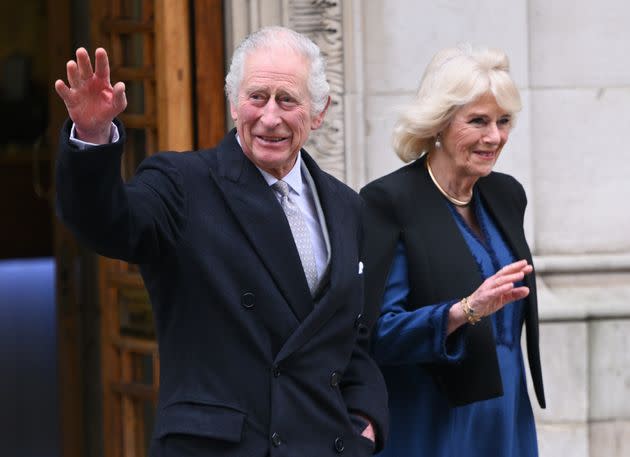King Charles Breaks Silence Following Cancer Diagnosis
King Charles has spoken publicly for the first time after Buckingham Palace revealed on Monday that the monarch was beginning treatment for cancer.
“I would like to express my most heartfelt thanks for the many messages of support and good wishes I have received in recent days,” Charles said in what the palace called “a thank you message” released on Saturday.
“As all those who have been affected by cancer will know, such kind thoughts are the greatest comfort and encouragement,” the king said, adding that it was “equally heartening to hear how sharing my own diagnosis has helped promote public understanding and shine a light on the work of all those organisations which support cancer patients and their families across the UK and wider world.”
“My lifelong admiration for their tireless care and dedication is all the greater as a result of my own personal experience,” the king said.
In the statement disclosing the king’s cancer diagnosis earlier this week, the palace did not specify the type of cancer Charles had or its severity.
“During The King’s recent hospital procedure for benign prostate enlargement, a separate issue of concern was noted,” the palace said in a statement shared with HuffPost at the time, adding, “Subsequent diagnostic tests have identified a form of cancer.”

King Charles III, with Queen Camilla, leaves The London Clinic on Jan. 29 in London. The king was receiving treatment for an enlarged prostate, spending three nights at the clinic.
“His Majesty has today commenced a schedule of regular treatments, during which time he has been advised by doctors to postpone public-facing duties,” the palace explained, though he “will continue to undertake State business and official paperwork as usual.”
The palace emphasized that Charles, 75, “remains wholly positive about his treatment and looks forward to returning to full public duty as soon as possible.”
Charles underwent surgery on Jan. 26, after the palace announced that month he was seeking “treatment for an enlarged prostate.” He was discharged from the hospital three days later.

